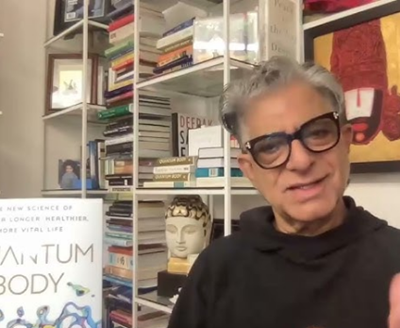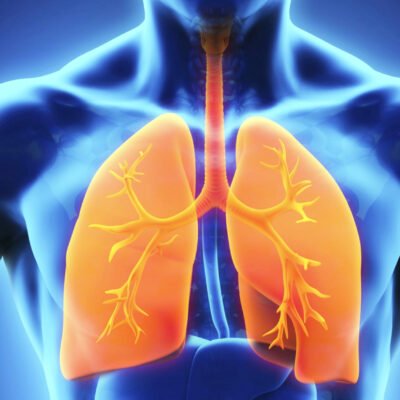If you’re a man and you want to improve your health, you should consider eating a vegan diet. This lifestyle choice has been linked to a number of positive health benefits, from improved cardiovascular readings to reduced risk of cancer and heart disease.
But there’s one thing that’s been holding men back from switching to a plant-based diet: the belief that it lowers their testosterone levels. Thankfully, a new study has dispelled this myth, finding that men who go veggie have as much of the hormone as meat eaters.
1. Lowers Risk of Heart Disease
A new study has found that vegetarians are at a higher risk of stroke than meat eaters. However, they’re also at a lower risk of heart disease.
A diet that’s rich in plant foods, such as fruits, vegetables, whole grains, and legumes, can improve cholesterol levels and prevent atherosclerosis. In fact, a plant-based diet can actually reverse coronary heart disease in some people. In a landmark study, patients who adopted a low-fat plant-based diet experienced plaque buildup dissolving and artery blood flow returning to normal.
Another study from the Ornish Clinic found that a plant-based diet can not only prevent heart disease, but also reverse it in some people who already had heart problems. This is mainly due to the lower fat content of a vegan diet and the fact that it contains essential nutrients such as fiber, calcium, potassium, and magnesium.
In addition to these, the high amount of antioxidants in a plant-based diet can also protect against cancer and heart disease. The antioxidants in a plant-based diet are called phytochemicals and can help combat free radicals that damage cells, which can lead to disease.
In addition, a diet that is rich in protein can protect against heart disease and stroke. Nuts, seeds, nut butters, quinoa, beans, lentils, peas, tempeh, and seitan are all excellent sources of protein. Other protein-rich options include veggie burgers, plant milk, and plant-based yogurt.
2. Lowers Risk of Cancer
A new study from the UK Biobank found that men who eat a vegetarian or vegan diet have a lower risk of cancer than their meat-eating counterparts. They also found that prostate cancer risk was 20-31% lower among vegetarians, while post-menopausal women who were vegetarian had a 18% lower risk of breast cancer.
The study analyzed data from more than 470,000 British adults who had been collecting food and medical records for nearly a decade. After accounting for socioeconomic, lifestyle and preexisting conditions, the researchers determined that eating a plant-based diet reduced cancer risk by 14% more than eating meat five times per week.
There are several reasons why this is the case, including the fact that plant foods are rich in nutrients that can prevent cancer. They’re also a good source of protein, which helps prevent tumor growth and reduces your risk for other health issues, like heart disease.
Moreover, a plant-based diet is rich in omega-3s, lutein and zeaxanthin. These nutrients help protect your eyes from the blue light emitted by digital devices and may also prevent vision loss in patients who are prone to glaucoma, according to studies.
A healthy plant-based diet is characterized by high amounts of vegetables, fruits, whole grains, legumes, nuts, seeds, and other healthy foods. It also limits red and processed meats. In addition, it promotes a diet that is rich in antioxidants, such as vitamins C and E, which can help protect against cancer, according to the American Cancer Society.
3. Lowers Risk of Diabetes
A vegan diet can lower the risk of diabetes by reducing the total amount of cholesterol in your blood. It can also help you lose weight.
Compared to meat eaters, those who cut out all animal products have a 50% lower chance of developing the disease. Those who go semi-vegetarian (eat no meat or fish but eat eggs and dairy) have a 28% reduction in their risk, and those who go full vegetarian (no meat at all) cut their rate of development by 61%.
Plant-based eaters also have a lower body mass index than those who follow a meat-based diet. This is because the vegan diet includes a lot of fruits and vegetables, which are low in fat.
The main concern is that it is difficult to get enough protein from a plant-based diet, but there are plenty of ways to make up for this. Adding tofu and other legumes to your meals is an excellent way to boost your protein intake without consuming too much saturated fat.
In addition, quinoa can be an excellent addition to your meal plan. This grain is rich in fibre and protein, Genericmeds Treatment Product helps regulate blood sugar levels.
A study published in the journal World Journal of Urology found that men who ate a healthy plant-based diet had a similar testosterone level to those who ate meat. These findings were surprising, because meat eaters have been thought to have higher testosterone levels than those who eat a vegetarian diet.
4. Lowers Risk of Depression
A healthy plant-based diet has been linked to a lower risk of depression, according to researchers. Among the benefits of a vegan diet are higher levels of vitamin B12 and iron, both of which can help improve mood.
The study was based on interviews with men in Estonia and Finland. It found that they were generally aware of the health effects of their food and aspired toward healthier eating. In addition, they tended to eat less red meat and consume more whole grains, fruits, vegetables, legumes, and nuts, all of which can boost mental wellbeing.
Nevertheless, a small percentage of the interviewees described themselves as “health vegans,” and in some cases even rejected the idea of this label. The figure of the “health vegan” is a culturally feminized, negative figure that relates to traditional masculinity scripts in a contradictory manner (Szabo, 2019).
The research participants’ lived experience suggests that this label does not necessarily reflect their actual health-related practices. However, we suggest that it is important to challenge typically masculine patterns of eating and acting around food.
5. Lowers Risk of Acne
Eating more vegetables, cutting out refined grains, and lowering sugar intake are all great ways to clear up acne. But it’s not as simple as that, and a diet without meat or dairy doesn’t necessarily make your skin clear.
One reason a vegan diet can help reduce acne is because dairy is one of the top culprits for this skin condition. Dairy contains hormones that stimulate oil production in the body, which leads to blocked hair follicles and large pus-filled spots.
Another reason why a vegan diet can help reduce acne is due to the fact that many of these foods have a low glycemic load, which means they cause a smaller effect on blood sugar levels than do other types of carbohydrate-rich foods. These include whole grains, beans, and fruits.
Despite this, eating more carbohydrates can still trigger insulin, which is the hormone that can lead to hormonal acne. This is why it’s important to eat a healthy diet that includes plenty of plant-based, non-refined carbohydrates like fruits and vegetables.
In fact, a recent study found that a high-carb vegan diet focused on fruit could help improve skin and increase the amount of antioxidants your body absorbs.
A high-fat, heavily processed, and highly refined vegan diet, on the other hand, might be a more dangerous choice for your health. In addition to causing inflammation and a host of other problems, eating more fat-rich foods can lead to nutritional deficiencies, which can worsen your acne.
6. Lowers Risk of Impotence
A healthy vegan diet has been linked to a reduced risk of impotence. This is due to a variety of reasons. Firstly, eating less meat helps to reduce the build-up of plaque on your arteries. This can hinder blood flow to your penis, and is a common cause of erectile dysfunction in men.
It is also thought that a vegan diet can improve sperm quality and mobility, as well as providing energy and stamina which all contribute to a more enjoyable sex life. This can help to avoid the need for a prescription drug such as Viagra, which is often ineffective and has nasty side effects.
The documentary film, Game Changers, filmed at the University of Colorado, has shown that a plant-based diet can boost a man’s erection size and endurance. To test this, urologist Dr. Aaron Spitz, and a team of volunteers eat one night with meat-based burritos, and then the next night a vegan one.
The results were surprising: after a single vegan meal, the men recorded much improved erections than after a meat-based one. This is likely because a plant-based diet contains a lot more fiber, which can increase blood flow to the prostate and encourage the production of nitric acid. カマグラ can help to enhance a man’s erections, and is especially important for men who are older, as it is believed that men who are older are at a greater risk of developing ED.





